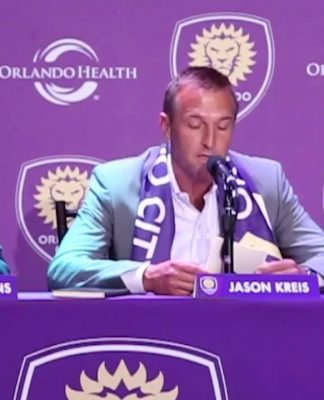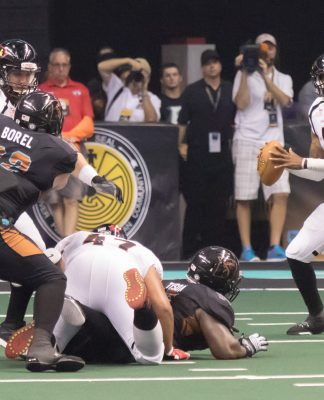
The Magic are still seeing inconsistencies come out and bite them late in games.
Every young team in the NBA has a learning curve to go through to reach levels of play that can, at the least potentially, carry them to bigger and better things. For some teams, that learning curve is small. For others, that learning curve is time consuming and, at times, frustrating.
For the Orlando Magic, it’s turning into a long and frustrating time that sees pockets of inconsistent play continue to come back and bite the team. Against the Miami Heat on Saturday, that poor play cost them, with the team falling apart in the second half en route to a tough loss late.
After dishing out 18 assists and two turnovers in the first half, the Magic coughed the ball up seven times compared to 13 assists in the second half. While they were able to move the ball some, their overall heads down mentality, is what ultimately cost them, according to coach Scott Skiles. “We had 18 assists, two turnovers in the first half, the ball was moving great. Then, as it [the lead] went from 15, to nine, then it was just every guy putting his head down, driving in there, driving into traffic. Even at the end of the game, just driving in there, driving in there, driving in there. It’s just not how we play well.”
This isn’t the first time this has happened to the Magic this season either. Throughout stretches of games where they’ve held big leads, they’ve seen the lead slip, subsequently pushing guys to try to get the momentum back all on their own. That play has ultimately cost the Magic, and will continue to if they aren’t able to find the proper balance in games with huge momentum shifts.
When asked about his teams struggles from the free throw line — the Magic shot just 6-of-13 for the game, including 2-of-9 in the second half — Skiles said those opportunities to keep the Heat at bay hurt his team. “We missed two-in-a-row twice within the span of a few minutes, but that’s precisely when you have to have maturity to fall back on what you need to do, and we didn’t,” said Skiles. “We just didn’t. Again, we just started going on our own, making plays we can’t make, and defensively just broke down all over the place.”
With his team up 15 in the second half, things were looking promising for the Magic to take home their sixth win in seven games, and move into second place in the Eastern Conference standings. Yet, they weren’t able to push their lead up to 20 points when they so desperately needed to, something that cost them games earlier in the season as well.
Their inability to grow the lead more wasn’t an excuse, though, because, as Skiles said, it’s hard to do that against a team of Miami’s calibre. “You don’t expect [a] 15 [point lead] to go to 25 against a team like that. They made a run, we answered back, though. I don’t know exactly what they got it to, maybe four, but we got it back to nine. So, we appeared to be stabilizing ourselves a little bit.
“When we know exactly what we need to be doing, and we’re watching the game, and not doing it, it can be difficult to stop a trend that’s going on in a game like that. We were trending in the wrong direction and we couldn’t get a stop.”
Struggling to find consistency has been an issue all season for the Magic. While they have stretches where they win game-after-game, they still see momentum killers come out and bite them. Saturday was one of those, that hurts a team, especially a young one looking to build something for the long-run.
While they’re making clear progress, they still have a long way to go. They have to be able to push those leads up over a certain threshold, even against teams that might be better than them.
Moreover, they also need to learn to not bog down, and start to play with the blinders on, because that’s when they really get themselves in trouble.
“When things get a little bit tight, we occasionally get the blinders on and want to do it on our own. We’re not good enough to do that. Period,” exclaimed a clearly frustrated Skiles.

















